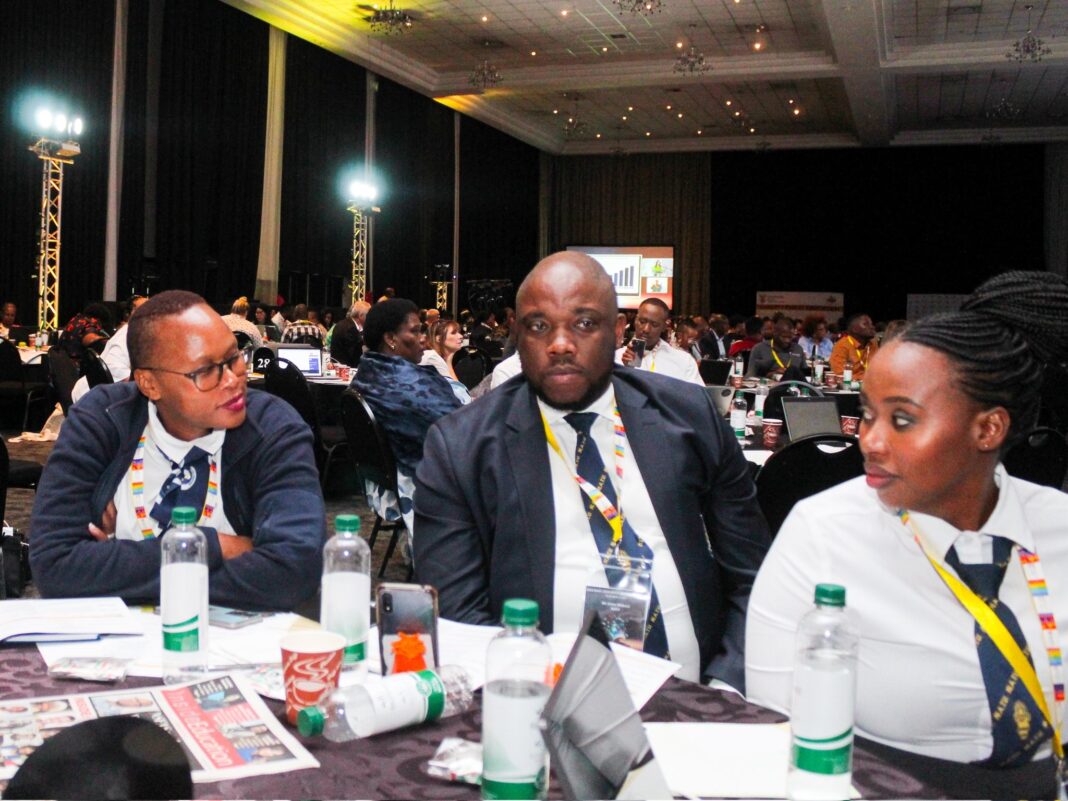Staff Reporter
THE Department of Basic Education (DBE) maintains its commitment to strengthening the Representative Council of Learners (RCL) functionality in public schools across all nine provinces.
As Youth Month activities continue nationally, the DBE gathered more than 90 RCL delegates at The Lakes Hotel and Conference Centre in Benoni for a two-day RCL Conference under the theme, “Equipping Learners with Knowledge and Skills for a Changing World”.
The Conference was organized as a platform for the DBE and Stakeholders to engage in progressive ways to improve RCL functionality.
The Conference also featured two-panel discussions, which explored strategies for curbing Gender-Based Violence (GBV) whilst promoting Sexual Reproductive Health and Rights (SRHR) in the schooling system, as well as supporting RCLs by way of equipping them with knowledge and skills for the changing world.
During the Conference, it was confirmed that many schools did not administer RCL structures well. “Where RCLs exist, they are not adequately established, trained and supported to play their expected roles effectively. In some schools, teachers appointed RCLs as prefects.
Some schools use dual systems of RCLs and prefects, with prefects being given a higher status by the schools. Poorly developed capacity-building programmers and lack of provincial support for RCLs have been cited as the main contributory factors for ineffective RCLs.
Some schools seem to have little appreciation of the youth’s role in creating a healthy learning environment for themselves. In this case, schools could mistakenly deny learners the right to contribute meaningfully to their academic development and well-being.
Chief Director for Planning Implementation and Support, James Ndlebe, recommended that RCLs should forge strong cooperation with School Management Teams (SMT) and School Governing Bodies (SGBs) to ensure quality school leadership and management, especially with respect to escalating factors that are affecting quality learning and teaching in schools.
“The voice of young people should be accommodated in all decision-making processes in the Basic Education Sector. The RCLs are a cornerstone in turning schools into centers of excellence,” remarked Mr Ndlebe.
According to Mr Matsetsebale Tleane, Managing Director for the Agape Youth Movement, RCLs are the voice of learners, adding that they should be used to improve quality learning and teaching in schools: “Learners in the RCLs play a significant role in school governance and paving the way for the academic and personal development of all learners.
“They, therefore, need to be guided and supported in discovering that future-focused and influential leader within themselves to present the RCL as a meaningful body and integral part of the school”.
Many presenters and RCL delegates pointed out that the DBE has made significant strides in providing guidelines on how GBV cases should be processed within the sector. They, however, urged provincial education officials to ensure that the RCLs were familiarised with the Protocol for the Management and Reporting of Sexual Abuse and Harassment in Schools to sustain a healthy learning environment.
The Protocol provides schools, districts and provinces with standard operating procedures for addressing allegations and ways in which schools must respond to reports of sexual abuse and harassment perpetrated against learners, educators and other school staff.
Schools are mandated to assist victims of sexual abuse and harassment by following standard reporting procedures and through the provision of appropriate support to learners.
Deputy Director-General for Delivery and Support, Ms Simoné Geyer, encouraged RCLs to be a bridge between learners and leadership, the voice for their peers, and the champions for positive change in their respective schools.
“The world is changing, and you, the RCLs, are at the forefront. Embrace the challenges, harness the opportunities, and, most importantly, believe in yourselves. You can shape the future, not just for yourselves, but for all South Africans.
“Through the RCL platform, you develop valuable communication, collaboration, critical thinking and problem-solving skills. These are the skills you need to navigate this changing world and become the innovators, the entrepreneurs and the leaders of tomorrow,” she said.
Day two of the conference saw delegates and stakeholders engaging in robust discussions during various commissions, where critical insights and a way forward regarding issues raised during the conference were tabled.
INSIDE EDUCATION







